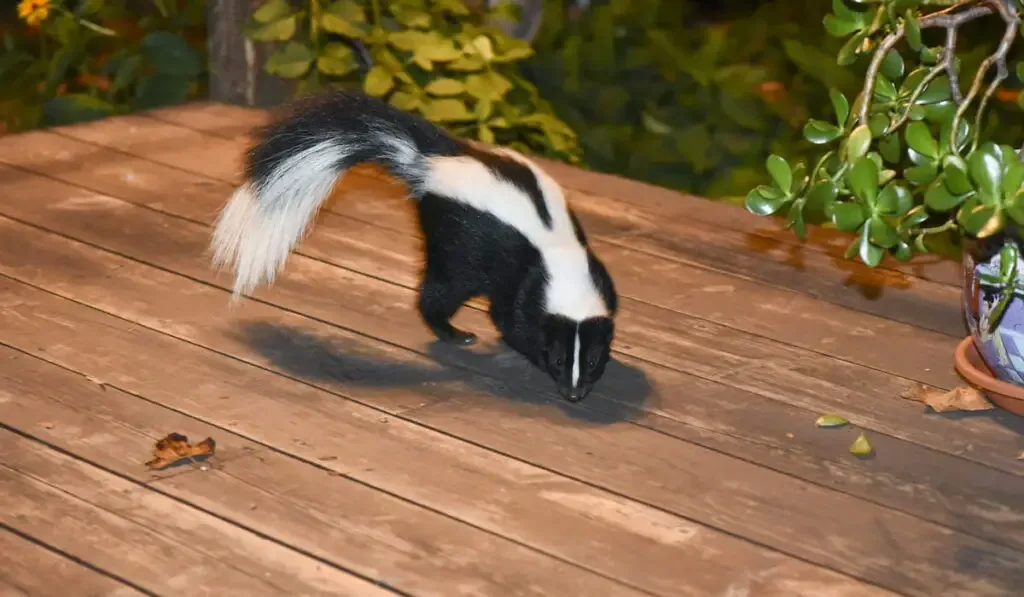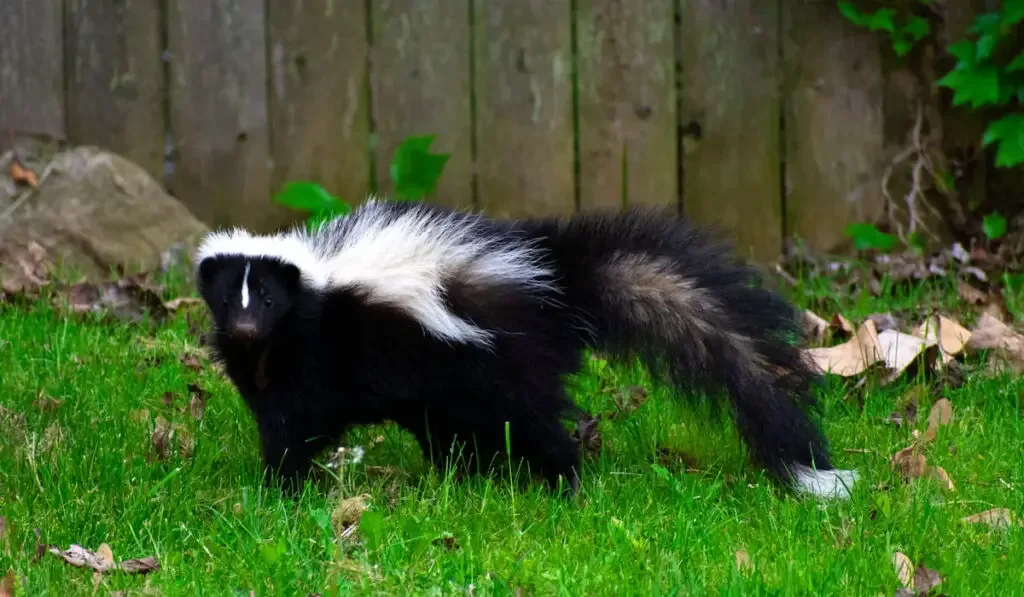When it comes to rodent infestations, few are more infuriating than mice. These little foragers will make quick work of tied-up garbage bags, food pantries, and exposed food. The scratching sound of their little paws working their way around inside your wall is maddening enough to make anyone lose their marbles, and this is before you find all the droppings. A less invasive but equally concerning pest are skunks, which leave a musky odor anywhere they hang their head.
But can that skunk that is nesting underneath your shed help remove the mouse population that is slowly increasing in the corners of your house?
Well, yes actually, skunks do eat mice. They are pretty good at it, too. Due to their larger size and agile feet, they can very easily make short work of mice and they have grown to rely on the smaller critter as a vital source of calories, especially in the winter months.
By the end of this article, you will have every drop of information you can squeeze out of the dietary habits of skunks and why they may actually serve as a beneficial predator in your yard despite their pungent first impressions.

Table of Contents
Why Do Skunks Eat Mice?
This question has more than one answer, so I will try to explain in three parts exactly why mice make up such a large percentage of a skunk’s diet.
The first and most simple answer is that the skunk finds very easy prey in mice who are not only slightly slower but far smaller and relatively defenseless to stop the hungry skunk.
The mouse only has two tools to help escape which are their incredible sense of hearing and their ability to fit into hard-to-reach places, effectively sheltering them from larger predators like the skunk.
Another reason the skunk enjoys the mouse as a meal so often is that the mouse gives the skunk a very vital part of his diet, protein. The protein found in mice is crucial in keeping the skunk healthy and energized especially, considering they will be hunting for food all year round as opposed to other animals who may hibernate in the colder months.
The third and final reason is due to the fact that like skunks, mice do not hibernate in the winter. So while all the plants are dying, seeds, berries, and most animals are in short supply. This creates a do-or-die situation for the skunk who has to find the few food sources available to him in the winter months, one of them being mice.
Skunks will also resort to taking out other small animals that do not hibernate, even feasting on carcasses to get them through to spring.

Benefits of Skunks Near Your House
That is a headline you never expected to read and I never planned to write, but surprisingly enough, the scavenging skunk can prove very beneficial to your property.
Now the downsides are very obvious, you run the risk of getting hit with enough bad odor to evacuate a football stadium, if you own a pet the skunk could injure or spray them, and they tend to leave their musky odor wherever they stay.
But if you are pet-free or overwhelmed with unwanted pests roaming around your yard, it may prove beneficial to let the skunk rent out a small space in your yard to clear out the riff-raff.
The Skunk Will Remove Garden Pests
Whether you have an infestation of rosemary beetles or you can’t touch a leaf without feeling the sludgy exterior of a slug, your local skunk will quickly go to work munching on the entire population.
The addition of a skunk to your yard can turn a dying cluster of plants into a thriving garden and allow you to actually enjoy the fruits of your labor as opposed to the local bug community making a dinner of it.
One thing to be cautious of is if you are growing vegetables the skunk will happily make a lunch of, they can also dig for grubs and larvae which may disrupt the soil quite heavily.

A Natural Pest Control
When it comes to rodents, skunks are anything but picky. Rats, mice, and voles are all happily killed and eaten by any skunk that will wander across one in his daily waltz for food.
On top of this, they will also clean up the carcasses of dead animals if you are unfortunate enough to come across one in your yard.
This is especially important if you want to keep out other unwanted carrion eaters such as vultures or crows.
The Won’t Outstay Their Welcome
It’s very rare you will find a skunk in one place for any longer than a few days unless they are looking for a den to produce young. Even then, the skunk will only stay long enough to finish nurturing her young and then begin to wander off again.
So if you are worried about having to deal with a potential roommate situation with the skunk burrowed next to your garage, rest assured that is almost never the case.
Conclusion
In a perfect world, both mice and skunks will stay far away from your house. But if you find both, one problem will probably start taking care of the other, or at least put a good dent in the issue.
So the next time you are finding mouse droppings lining the corners or your cabinets and hard-to-reach places, maybe let that nosy skunk you’ve spotted outside spend a couple of days in your yard and help fix that mouse problem.
References:
- https://skunk.com/what-do-skunks-eat/
- https://crittercleanout.com/do-skunks-eat-mice/
